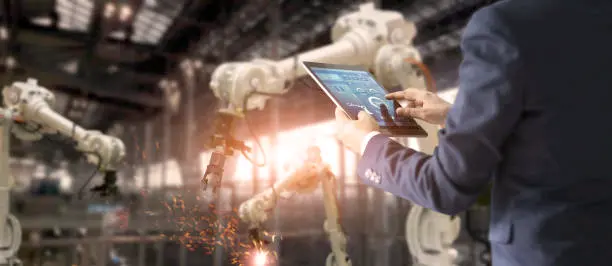
Enhancing Healthcare Efficiency: The Role of Automation in Medical Facilities
- Admin
In the fast-paced world of healthcare, efficiency is paramount. From patient care to administrative tasks, every aspect of medical facilities must operate smoothly to ensure optimal outcomes for patients. Enter automation – a transformative force that is revolutionizing healthcare operations and improving patient care. In this article, we'll explore the various ways automation is enhancing efficiency in medical facilities and how Ryodo Automation is leading the charge in this transformative journey.
One of the primary areas where automation is making a significant impact in healthcare is in administrative tasks. Tasks such as appointment scheduling, billing, and medical record management can be time-consuming and prone to errors when done manually. By implementing automated systems, medical facilities can streamline these processes, reduce administrative burden, and free up valuable time for healthcare professionals to focus on patient care.
In addition to administrative tasks, automation is also revolutionizing clinical operations within medical facilities. From automated medication dispensing systems to robotic-assisted surgeries, automation technologies are improving the accuracy, precision, and efficiency of medical procedures. These technologies not only enhance patient safety but also reduce procedure times and recovery periods, ultimately leading to better patient outcomes.
Moreover, automation plays a crucial role in inventory management and supply chain operations within medical facilities. By implementing automated inventory tracking systems and predictive analytics, healthcare providers can ensure that essential supplies and medications are always available when needed. This not only prevents stockouts and wastage but also optimizes resource utilization and reduces costs.
Another area where automation is transforming healthcare is in patient monitoring and data analysis. Remote patient monitoring devices, wearable sensors, and AI-powered analytics platforms enable healthcare providers to monitor patient health in real-time, identify potential issues early, and intervene proactively. This proactive approach to healthcare not only improves patient outcomes but also reduces hospital readmissions and healthcare costs.
Ryodo Automation is at the forefront of this healthcare revolution, offering a comprehensive suite of automation solutions designed specifically for medical facilities. From electronic health record systems to robotic surgical assistants, Ryodo Automation's solutions are empowering healthcare providers to deliver high-quality care more efficiently and effectively than ever before.
In conclusion, automation is revolutionizing healthcare operations and improving patient care in medical facilities around the world. By streamlining administrative tasks, enhancing clinical operations, optimizing supply chain management, and enabling proactive patient monitoring, automation technologies are driving efficiency and innovation in healthcare. Embrace the future of healthcare with Ryodo Automation and unlock new possibilities for your medical facility.
